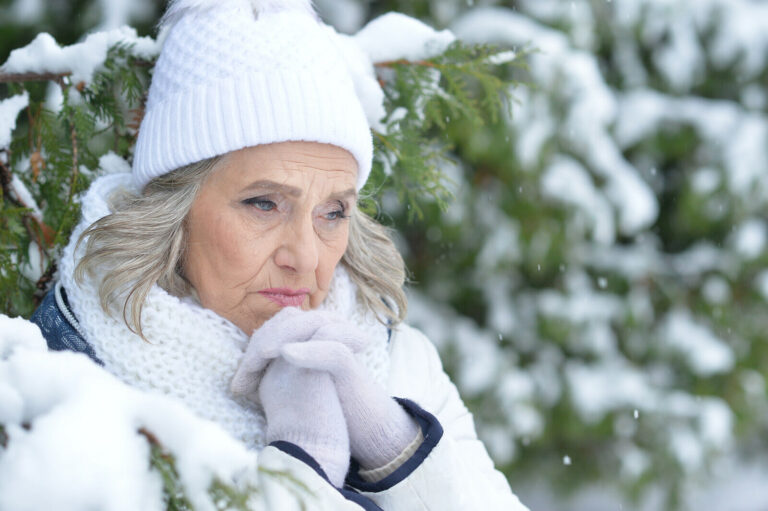While memory loss can present unique dangers and challenges for seniors and their family members all year long, winter can be particularly problematic. It’s important for loved ones, especially those who are new to caregiving, to be aware of the risks associated with memory loss and the coldest season of the year. Here are some of the seasonal hazards to learn more about, from wandering during inclement weather to falling on icy sidewalks.
Winter Safety Challenges for Adults With Memory Loss
- Slip-and-fall injuries rise in winter: Falls are the leading cause of disability and fatal injuries among older adults. Experts say one out of four seniors will experience a fall each year. People who have Alzheimer’s or other forms of dementia often develop balance problems, making their risk for taking a tumble even higher. Make sure you have a plan in place for snow removal and treating icy sidewalks wherever your loved one calls home, whether it is your house or theirs.
- Wandering can be deadly: Another behavior common among older adults with memory impairment is wandering. They do so for a variety of reasons, ranging from being unable to find a bathroom to not recognizing their surroundings as home. While it can be dangerous any time of year, roaming away from home during bad weather can be deadly. Wandering and Dementia: Management and Prevention Tips has good advice on minimizing the risk of your loved one straying from home.
- Heating-related mishaps: Increased cold sensitivity is a normal part of the aging process. Wintertime can make the situation worse. Because judgment is often compromised by dementia, an adult living with some form of it might try to warm up using less-than-safe measures. For example, they might turn on the stove or oven and forget to turn it off, which can lead to a fire or carbon monoxide poisoning. Space heaters are another potential fire hazard that should be avoided. The senior might forget to turn it off overnight or place flammable materials too close to the unit. Try to explore safer ways for the senior to stay warm, such as placing sweaters and warm footwear in prominent locations around the home.
- Less daylight exacerbates sundowning: Sundowner’s syndrome, often referred to as sundowning, causes behaviors ranging from wandering to aggression and agitation. It occurs later in the day as the sun is beginning its descent. While the cause isn’t known for sure, researchers believe it is linked to diminished light. Gray winter days can cause the condition to worsen. Taking steps to mitigate the effects, such as leaving all the lights on in the home, might help.
While this information may seem frightening, it’s not intended to scare you. Rather, we hope it will help you learn more about winter hazards for people with dementia so you can take steps to keep them safe.
Consider Memory Care at ASC
While improving safety measures around the home will help, caring supervision is a necessity as dementia progresses. If your family obligations, such as working outside the home and raising children, make that 24/7 oversight impossible, American Senior Communities can help.
With over 100 communities in Indiana, we are leaders in caring for adults with Alzheimer’s disease and other types of dementia. In addition to short-term respite care, we offer memory care apartments for those in the early to middle stages of the disease. Accommodations are also available in Auguste’s Cottage, a social model philosophy of care.
Visit Memory Care on the American Senior Communities website for help determining which option might be best for your loved one!




